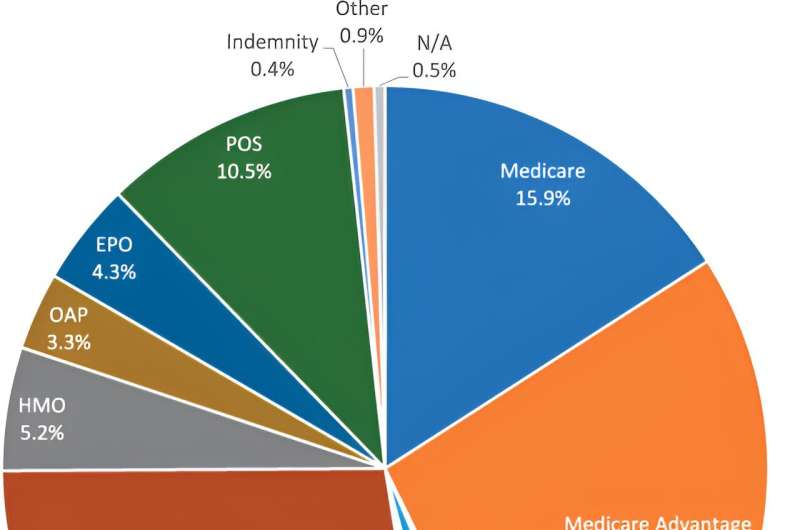This article has been reviewed according to Science X's editorial process and policies. Editors have highlighted the following attributes while ensuring the content's credibility:
fact-checked
trusted source
proofread
For men with erectile dysfunction, penile implants are usually covered by insurance, but not always

Implantable penile prostheses (IPPs) are an established treatment option for erectile dysfunction (ED), and are covered by insurance in about 80% of cases, reports a paper in the September issue of Urology Practice.
However, some employer-sponsored insurance plans specifically exclude this guideline-recommended treatment option for ED, according to the new research by Dr. Mohit Khera, MD, MBA, MPH, of Baylor College of Medicine, Houston, Texas, and colleagues. "Our study raises concerns that some insurance plan policies are denying an effective, research-proven therapy, for a very common condition for which treatment is considered medically necessary," Dr. Khera comments.
IPP coverage rates are high, but vary by insurance type
Inflatable penile prostheses are one of several effective treatments to restore sexual function in men with ED, which may affect as many as 30 million American men. Based on evidence of effectiveness including high patient satisfaction rates, IPPs are included as a treatment option in AUA guideline recommendations for ED.
A recent study reported that while the use of medications to treat ED has remained stable over the past decade, use of IPPs and other treatments has declined. It is unclear whether lack of insurance coverage is a barrier to IPP treatment.
Dr. Khera and colleagues used health plan benefit verification databases to assess approval status for prescribed IPP treatment for the years 2018 to 2021. The study included an analysis of "all-payer" databases, including commercial and private payer insurance as well as government or public payer insurance; as well as a separate analysis using an employer-sponsored health plan database.
Overall, about 80% of patients had insurance coverage for IPP. Government insurance plans offered the most extensive coverage: 98.7% for Medicare, 97.1% for Medicare Advantage, 100% for Tricare (covering US military and families), and 80% for Veterans Affairs. Coverage for commercial insurance was also favorable at 75%.
However, coverage rates for IPP were lower for certain types of commercial insurance, falling under 50% for some categories. For patients with employer-sponsored health plans, the most common reason for denial was that the plan specifically excluded coverage for IPPs.
Denials tied to employer exclusion of guideline-based IPP treatment
Analyses of the "all-payer" databases showed that the percentage of patients with no coverage due to employer exclusion increased 29.3% from 2019 to 2021. Analyses of the employer-sponsored health plan database showed that 34.2% did not have IPP coverage due to employer exclusion.
Employer exclusions of IPP coverage create "confusion and frustration" for clinicians, the researchers write. Such exclusions "usurp the clinicians' determination of medical necessity under the health plan's medical policy, make it difficult for providers to implement ED treatment guidelines appropriately, and limit essential treatment for patients with ED."
The findings suggest that employer exclusions may have contributed to the reported decreases in IPP use in recent years. Dr. Khera and colleagues conclude, "Per AUA guideline recommendations, it is imperative to ensure that all types of effective ED treatments are consistently accessible to patients."
Dr. Khera adds, "The employer exclusion could also have a negative impact on the quality of life of patients recovering from prostate cancer and experiencing ED as a side effect of prostate cancer treatment."
More information: Mohit Khera et al, Implantable Penile Prosthesis for Erectile Dysfunction: Insurance Coverage in the United States, Urology Practice (2023). DOI: 10.1097/UPJ.0000000000000416


















